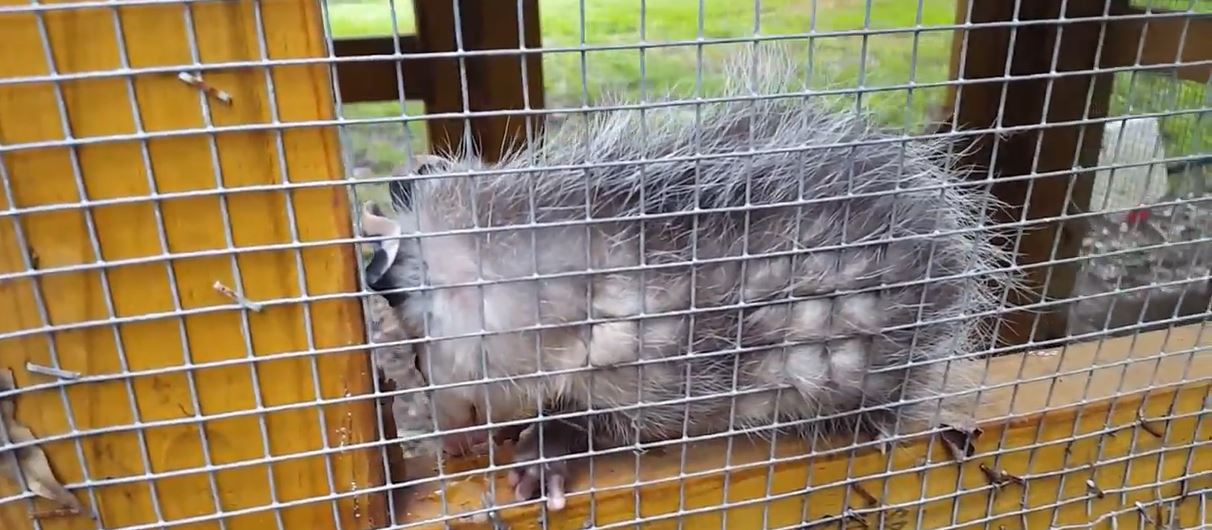What To Do If You Find A Baby Wild Animal

Finding a baby wild animal can be an interesting experience. You will want to help the animal, but may not know how to do so. The best way to help the baby animal is to make sure it really needs your help and then contact a rescue organization or expert and follow their directions, but the process is a bit more involved than this. Luckily, although people say that touching a baby animal will make its mom leave it behind, this is not true of all species. Despite that, you still don't want to touch the baby, even if you know its mom is dead. Animals of all ages may carry diseases, so whenever you handle the baby, use gloves or a towel to do so.
Decide If The Animal Is An Orphan
The first instinct most people have when finding a baby animal is to assume it is an orphan. The obvious indication that it is an orphan would be if you see a dead mother nearby. Other than that, you will need to see if the animal seems big enough to feed and protect itself, which will depend greatly on species.
More Information For Specific Baby Animals
Deer are one of the animals that don't like the human scent, so if you accidentally touch the baby, rub a towel in the grass and then over the animal to remove your scent. Generally speaking, any baby deer who is quiet and calm is fine; his mother is just not there are the moment. The same general rule is true for baby foxes. If the fox seems healthy and energetic, leave it alone. It is common for foxes to leave their babies alone while hunting.
Opossums stay with their mothers until they are old enough, but sometimes they fall off their mom's backs and she doesn't notice, leaving them orphaned. Consider an abandoned opossum an orphan if it is under 7 inches long (without the tail). Otherwise, he is fine alone.
If you find a baby rabbit in its nest and the nest is undisturbed and in good shape, it is not an orphan. Baby rabbits with open eyes, erect ears, and fur four inches or more are old enough to fend for themselves.
Baby raccoons or skunks who are alone for over several hours are probably orphans, but be sure to observe him for a few hours to double check. You should do the same if you find a baby squirrel who fell from its tree that day.
Decide If The Animal Is Sick Or Injured
Whether or not the baby wild animal is an orphan, it may need your assistance if it is injured. In the case of birds, a single drooping wing indicates a possible injury. Other indications (for all species) that the animal is sick or injured include limping, being hit by a vehicle, shivering and/or wet, it being picked up by dogs or cats, and wounds or bleeding.
Contact A Wildlife Specialist
As soon as you have determined that a baby animal needs your help, you should contact a local wildlife rescue or rehabilitation center or other wildlife specialist. Other options include your local humane society or shelter, veterinarian, nature center, or animal control agency. Tell them how you found the animal, whether it is an orphan or injured, and what injuries it presents.
They will most likely give you specific instructions, either telling you to watch the animal until they arrive (and possibly take action in the meantime) or to bring them the animal. Follow the advice of the wildlife specialist to make the animal comfortable until they get there or to prepare him for transportation.
Capturing Or Transporting The Animal
Whether you are caring for, capturing, or transporting a baby wild animal, remember not to touch him. Instead, wear gloves or use a towel to scoop him up and put him in the necessary transport container. Small birds, such as songbirds, will be fine in a paper bag with holes punched in it for breathing. Anything larger or from another species will do better in a cardboard box. Before placing the animal in the box, punch air holes (going inside to outside) and put a soft cloth inside the box to keep the baby comfortable. Don't feed the animal or give it water unless the wildlife specialist specifically instructs you to. He may be in shock, in which case eating or drinking will worsen it.
If the wildlife specialist is coming to you, place the animal in a quiet, dark, warm place until they arrive. If you are taking the animal somewhere, do so as soon as you can and try to minimize noise, such as talking and radio, during the drive. While in the car, try to keep the baby animal's box away from direct heat or air conditioning.
Read the Pest Wildlife Home Page page for helpful information and to learn more about What To Do If You Find A Baby Wild Animal

